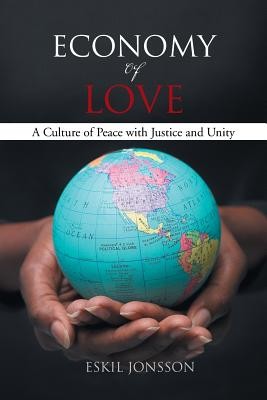
- We will send in 10–14 business days.
- Author: Eskil Jonsson
- Publisher: AuthorHouse UK
- ISBN-10: 1456788515
- ISBN-13: 9781456788513
- Format: 15.2 x 22.9 x 0.4 cm, softcover
- Language: English
- SAVE -10% with code: EXTRA
Reviews
Description
During the first decade of the 20th century we have witnessed increasing concerns for the world economy with demands for new financial capital to pay off huge national debts and pressures for economic growth all over the world. On top of that there is an increasing ecological crisis as well as a humanitarian crisis due to poverty, violence and war, which is at least partly due narrow economic goals and do not pay much attention to the wider environmental, social and cultural context (Polanyi, 2001). Modern economists or sociopolitical scientists do even less relate economy to religion or faith although Weber explained earlier that Protestant Ethics provided legitimacy for capitalism. In recent years, however, several theologians have written extensively on what is sometimes referred to as "theological economy" (Brattgård, 1963; Hall, Meeks, 1989; Long, 2000; Nelson, 2001;Tanner, 2005;Atherton, 2008). Several of these researchers states that the household economy is the necessary basis or framework for an inclusive view on the deeper culture of economy as a that also pays attention to a an ecumenical (oikoumene) perspective. The assumption is that all resources human or natural are given freely to all the people as stewards of God.
EXTRA 10 % discount with code: EXTRA
The promotion ends in 19d.14:41:05
The discount code is valid when purchasing from 10 €. Discounts do not stack.
- Author: Eskil Jonsson
- Publisher: AuthorHouse UK
- ISBN-10: 1456788515
- ISBN-13: 9781456788513
- Format: 15.2 x 22.9 x 0.4 cm, softcover
- Language: English English
During the first decade of the 20th century we have witnessed increasing concerns for the world economy with demands for new financial capital to pay off huge national debts and pressures for economic growth all over the world. On top of that there is an increasing ecological crisis as well as a humanitarian crisis due to poverty, violence and war, which is at least partly due narrow economic goals and do not pay much attention to the wider environmental, social and cultural context (Polanyi, 2001). Modern economists or sociopolitical scientists do even less relate economy to religion or faith although Weber explained earlier that Protestant Ethics provided legitimacy for capitalism. In recent years, however, several theologians have written extensively on what is sometimes referred to as "theological economy" (Brattgård, 1963; Hall, Meeks, 1989; Long, 2000; Nelson, 2001;Tanner, 2005;Atherton, 2008). Several of these researchers states that the household economy is the necessary basis or framework for an inclusive view on the deeper culture of economy as a that also pays attention to a an ecumenical (oikoumene) perspective. The assumption is that all resources human or natural are given freely to all the people as stewards of God.


Reviews